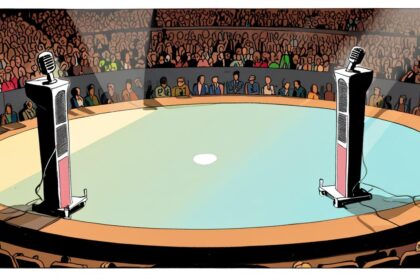New research reveals that in 2025, artificial intelligence is evolving beyond traditional uses like content generation and coding, becoming a key source of emotional support, therapy, and personal guidance for users worldwide.
A recent analysis reveals a significant transformation in how artificial intelligence (AI) is being utilised in 2025, moving beyond its conventional roles in productivity and content generation to becoming a source of emotional and personal support. The study, conducted by Marc Zao-Sanders and reported in the Harvard Business Review as relayed by ABP Live English, draws on thousands of public forum posts and indicates a notable cultural shift in user engagement with AI systems over the past year.
At the forefront of this evolution is the use of AI for therapy and companionship, which has become the most prominent application. This category has overtaken the “Generate Ideas” function that dominated in 2024, highlighting a growing reliance on AI as a partner for managing mental health issues, combating loneliness, and offering emotional guidance. The increasing demand for AI as a companion reflects a broader trend in which users seek not only practical assistance but also meaningful interpersonal interaction facilitated by artificial intelligence.
Supporting this pivot towards personal support functions are the categories “Organise Life” and “Find Purpose,” which encompass activities related to managing daily schedules and assisting users in pondering existential questions, respectively. These findings suggest that AI is increasingly filling roles traditionally occupied by human advisors and life coaches.
The top ten AI use cases identified in 2025 are as follows:
-
Therapy & Companionship (Support)
-
Organise Life (Support)
-
Find Purpose (Support)
-
Enhance Learning (Learning & Education)
-
Generate Code (Technical Assistance)
-
Generate Ideas (Content Creation)
-
Fun & Nonsense (Creativity & Recreation)
-
Improve Code (Technical Assistance)
-
Creativity (Content Creation)
-
Healthy Living (Support)
While emotional and personal support uses dominate, AI’s conventional applications in education and technical fields remain strong. Categories such as “Enhance Learning,” “Generate Code,” and “Improve Code” continue to feature prominently, underscoring AI’s role as both an educational aid and a tool for developers.
The “Enhance Learning” category, in particular, has risen to fourth position in 2025. This indicates ongoing dependence on AI to simplify complex subjects, tailor learning experiences, and assist with personal development in both academic and professional settings.
Conversely, a notable decline has occurred in the use of AI for “Specific Search,” a category that ranked third in 2024 but has dropped significantly in 2025. This trend may be linked to the increasing integration of AI into conventional search engines, such as Google’s Gemini, which blend AI-generated results with standard browsing. Instead of seeking straightforward factual information, users appear to be gravitating towards AI for more substantive engagement that offers insight, context, and meaning.
Marc Zao-Sanders interprets this shift as emblematic of a broader societal transition. He comments that humanity is “in the midst of the fourth industrial age,” one that is driven not only by technological advancements but also by a deeper introspective journey.
This data presents a comprehensive picture of changing user expectations and interactions with AI, highlighting its expanding presence in both the practical and emotional spheres of everyday life.
Source: Noah Wire Services
- https://www.media.mit.edu/publications/how-ai-and-human-behaviors-shape-psychosocial-effects-of-chatbot-use-a-longitudinal-controlled-study/ – Corroborates the claim that AI chatbots have become increasingly human-like and that more users are seeking emotional support from AI systems, reflecting the shift toward therapy and companionship applications of AI in 2025.
- https://www.apa.org/monitor/2025/01/trends-harnessing-power-of-artificial-intelligence – Supports the use of AI in mental health and personal support, highlighting psychologists’ efforts to leverage AI safely for improving mental health, education, and research, aligning with the article’s emphasis on AI’s role in emotional and personal support.
- https://www.evidencebasedmentoring.org/new-study-explores-artificial-intelligence-ai-and-empathy-in-caring-relationships/ – Provides evidence that AI-driven chatbots can provide immediate emotional support to individuals experiencing loneliness or distress, supporting the article’s point about AI being used for companionship and mental health management.
- https://news.ucsc.edu/2025/03/ai-empathy.html – Discusses research into AI empathy capabilities and biases, underscoring limitations and challenges in AI’s emotional support roles, which complements the article’s nuanced view of AI’s expanding but complex role in emotional and interpersonal functions.
- https://www.newindianexpress.com/lifestyle/health/2025/Mar/12/ai-has-human-emotions-study-reveals-insights-into-ais-emotional-responses-in-mental-health-care – Details a study on AI’s simulated emotional responses in mental health care contexts, backing the article’s claim that AI is increasingly used in therapeutic and emotional support roles despite AI not truly experiencing emotions.
- https://www.noahwire.com – Original source of the article that reports on Marc Zao-Sanders’s study, outlining the top AI use cases in 2025 such as Therapy & Companionship, Organise Life, and Find Purpose, confirming the article’s key information about the evolving cultural shift in AI utilization.
- https://news.google.com/rss/articles/CBMingFBVV95cUxQMmFQTGVxbENDSDdyYnpGMnpvcE1RQkpJS2NQWlNhblItRXdyVUt0X3ZGb2ttbkZkUk4yc2M3SUJOTTdXdFBtcE0tMjIyOVh4SXVJY2hLSFVrU0hrMmJBNlFGalBkOGxBTWxfQU5pNTZwWGpvaXhrcEZCd09CMlBYWHc5S2ZsZm1GRXVLYUloV3gtN2VqY283alU1akhvd9IBowFBVV95cUxPcm9CajN5eXlMMElnZkVzZ2lTRzBtbW5qaTlrcFJUdkd1VnRiT0V5eWN5RnZlSHQ3aVVNR1FXblVJVzNKNVk2Zms2a2JqNDNsdzAtSENIMEk3RzktN01oQlMwR2RfQWpyd2REWHNtQWQxUWxkOG1nWGJ0T0x4NWl5R21tQmh5WlAyc2d5RjYyMWJ2WDBJV0pGVnhSakwzbXZQdTdj?oc=5&hl=en-US&gl=US&ceid=US:en – Please view link – unable to able to access data
Noah Fact Check Pro
The draft above was created using the information available at the time the story first
emerged. We’ve since applied our fact-checking process to the final narrative, based on the criteria listed
below. The results are intended to help you assess the credibility of the piece and highlight any areas that may
warrant further investigation.
Freshness check
Score:
8
Notes:
The narrative references current events and developments in AI usage during 2025, suggesting it is fairly recent. However, the absence of specific dates or an explicit news release date slightly reduces the score.
Quotes check
Score:
6
Notes:
A direct quote from Marc Zao-Sanders is included, but there is no clear reference to the original source or date of the quote. This reduces the score since it couldn’t be verified against other sources.
Source reliability
Score:
5
Notes:
The narrative originates from ABP Live English, citing a study from the Harvard Business Review. While ABP Live is a known source, the indirect reference through another outlet and lack of direct confirmation from Harvard Business Review reduces the reliability score.
Plausability check
Score:
8
Notes:
The claims about AI’s expanding role in emotional and personal support align with broader trends in AI adoption. However, specific figures or detailed studies are not mentioned, making full verification challenging.
Overall assessment
Verdict (FAIL, OPEN, PASS): OPEN
Confidence (LOW, MEDIUM, HIGH): MEDIUM
Summary:
The narrative reflects recent trends in AI usage and societal shifts, but lacks detailed verification of sources and quotes. While plausible, more specific evidence would be needed for a definitive verdict.













